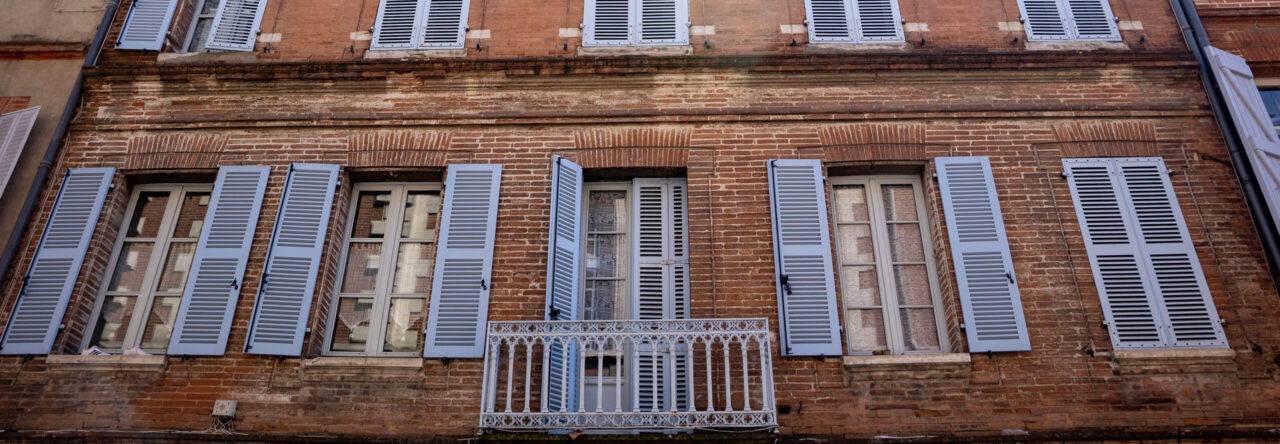
As we prepared for our Study Abroad, the Center for Global Studies and Engagement warned us of the many cultural differences to come. Bread with every breakfast, coffee out of bowls, our hosts doing the laundry for the entire house; we expected these small cultural differences. Landing in Toulouse-Blagnac, we started to discover new differences, and adapt more… to pigeons in the airport, to crossing the street even with red walk signs, and to sidestepping dog droppings on the Allée Jean Jaurès.
When Dickinson sent us abroad, we were prepared to meld ourselves to all the small differences day to day. What we didn’t anticipate, and discovered more and more after becoming Toulousain, were the huge philosophical differences between American and French society. France values environmentalism over convenience, with paper cups and meticulously separated recycling. La laïcité stands contrary to America’s lax freedom of speech and religion, tackling equality from a different perspective.
One of the most shocking cultural paradigms, which seems to extend to all corners of life in Toulouse, is the division of public and private life. Through laws, technology use, and even in the classroom, we’ve started to shift how we view our privacy different from our public image.
SOCIAL INTERACTIONS
At small liberal arts colleges in the US, students are a lot closer to their professors, almost to the point of friendship. In this relationship shared between students and professors, it is very common to know information relating to all aspects of life, such as family information, personal family problems, aspirations and passions as well. As first-years, the math department welcomes students into their living rooms and to answer the door to trick-or-treating children. At the end of the semester, classes might gather at local brunch spots to share a meal with their professor. When the class is assigned particularly difficult homework, students email the faculty desperately after midnight with questions, and can expect to receive a response within a half hour. Professors are an active part in how students mature and form relationships. They remember our clubs, our weekend plans, our roommates and siblings and hometowns, and the students remember them for life.
At Sciences Po, even with the small class sizes, we’ve never spoken to our professors one on one. We don’t know whether Madame Pelissier has kids, or whether Monsieur Pourcher lives in Toulouse. An email to clarify dissertation guidelines for our International Relations class went unanswered for a week. Whereas in the US, a student-professor relationship presents an opportunity to share our private lives, in France, the professionalism of the classroom seems to divide students and professors more than even strangers on the street.
Celebrities, too, reap the benefits of a more stringent private/public divide in France. Whereas in America we saw Kylie Jenner’s pregnancy from conception, in France, celebrities seem to keep their private lives private. For example, in 2021 in the US, a rumor spread on TikTok that “Call Me By Your Name” actor Armie Hammer had cannibalistic tendencies and a perverted internet footprint. This rumor became public knowledge over a week before journals and magazines picked up the story, thanks to the paparazzi and the culture surrounding sharing the private lives of public figures. In contrast, Stromae and Omar Sy don’t face weekly rumors of drug addiction, affairs, and plastic surgery. Our hosts don’t read French tabloids, whereas People magazine is in every waiting room in America. With the prevalence of social media like TikTok and Buzzfeed, which provide a daily stream of celebrity gossip, there is very little that stays private in the US. France and the US differ extremely in the regulations and norms regarding privacy on the internet.


PUBLIC AND PRIVATE LIVES ONLINE
Every time we unlock our phones, there’s a clear reminder of the strict French regulations on privacy. We can’t open Google, Wikipedia, or Buzzfeed without reading a long disclaimer and accepting the site’s cookies. And not only do we except them once, but every time we access the website. Meanwhile, last year in the United States, there was a scandal related to Apple’s app store: an app for children, Talking Tom, filmed the users without permission and mined data from the devices. What a stark difference that in the US an app can access background information without any notification; but in France, accessing anything on the internet requires cookie permission. This is due to new guidelines of 2019 from the CNIL, The National Commission for Informatics and Freedoms. They recently confirmed that continuing to browse a website after its cookie banner is displayed is not synonymous for valid consent of cookie use in France. Operators that use cookies and trackers must now prove that they have obtained affirmative consent from the user.
Here in France, we are protected by a European law called RGPD (Règlement Général sur la Protection des Données). This translates to General Data Protection Regulation, in which the French, and larger European population are strongly protected from the complexities of data mining of companies. Created in 2016, and put into effect in 2018, there now exists a framework for businesses to follow regarding the processing of personal data. This concept of safety has existed in France for over two decades, from when the internet was in its infancy. Despite these laws seeming to be easily put into effect here, on the other side of the Atlantic, the U.S. is the only OECD country without a Data Protection Agency. If we did have these laws like France, perhaps we would not have experienced Mark Zuckerberg testifying in front of the American government while the Americans feared for their data safety.
Through these laws that are prevalent in everyday life for the French, while they are evidently missing from our overall protection in the United States, we can gain a direct understanding of the divide between private and public life. Before we came to France, we had limited safety on the internet, and we were forced to be comfortable with this. The concept of our private lives being easily mined and processed every time we access the internet has become familiar. But now we are realizing that this is not the case in France, for the value of the French private lives is more prevalent than in the US. Indeed, it is clear that the digital world of France is simply a demonstration of principles that already exist.
GOVERNMENT AND LAWS
As for the government and the laws, the question of public and private life is pretty clear. In France, compared to the U.S, the European Union establishes the policies that must be followed by the governments, and collecting any data and information on the population is strictly controlled. However, the government in France still strives to participate and improve the lives of French people. La “Sécurité sociale” for example is the same concept as the “Social Security Number” in the U.S but here, the government makes more efforts in helping french citizen and non-citizen residents to have access to health care and other types of social services. For example, the first time I went to the doctor here, I was almost shocked to see that I only paid 25 euros for a consultation, unlike the hundred dollars I would have to pay in the United States. As the French Government collects data – for example all the official acts – in order to create a data of criminality or medical records, they in fact invade the privacy of others in search for the overall protection of the French society. What the government does with the tax citizen pay is more than a concern for France citizen and when they don’t think that their privacy or the money is not well used, they don’t hesitate to make it known. At the Capitole, near the central place of the Toulouse city next to the City Hall, every Saturday the population of Toulouse protest because they think that their privacy is not well used with the question of the Health Pass or « Pass Sanitaire ». The government signed laws about allowing only vaccinated people to major public places in the city like the restaurants, cinema, some shops the stadium etc. which raised some concerns about how the government wants to control the population over an app.
At what point do the French sacrifice their privacy to the need of having social protections?
CONCLUSION
It is clear that the relationship between private and public life and information manifests very differently in France than in the United States. More often, it can be observed that French society are big advocates in respecting people and their private lives – which leave French way of life very abstract. This is the explanation for why teachers seem more distanced from their students, or why the ‘juicy details’ on the latest French star are mostly unknown. The same works for the collection of information when using online platforms such as Google or Facebook, as the French government works to protect data. In the United States, this is completely the opposite as people seem to often intertwine both their private and public life together. In the everyday life of United States, people are more often very open and analytical about their public and private life. American people are open books because they know that some amount of privacy will be lost as a member of society. American people still believe in their own right to set their own rules to defining privacy. While we seem to be complacent with our constant minding and processing of our private lives, we also view that obtaining secrecy comes with sacrifice. “No matter what policies are enacted, however, it’s clear that hard choices will have to be made regarding how much we want to give up and how much we want to keep secret.”

Leave a Reply